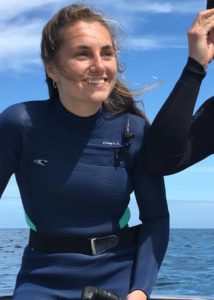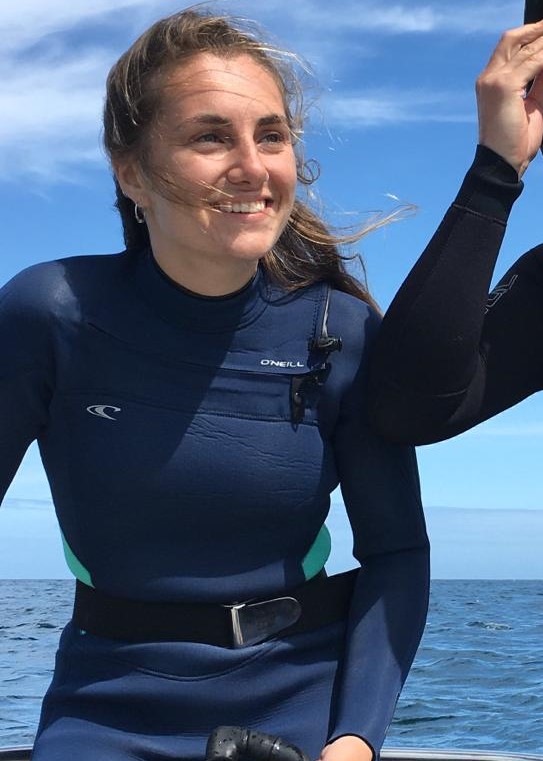We are looking back on some of our MSc graduates who have excelled in marine science around the world since studying with us. Today we meet Camille Burton, MSc Marine Environmental Management graduate (2021) and now a Marine Advisor for Natural England.

What did you enjoy most about studying at the University of Exeter?
Being taught material from current research from some of the top scientists.
What were the best aspects of studying your course?
Our field trip, whilst not the Maldives I thoroughly enjoyed being on campus and in the Isles of Scillies with my class for two weeks.
What skills and experiences did you gain that will/have been useful for job/internship applications?
My self-management and independent learning. Throughout the duration of my masters degree I developed upon the use of the mapping software QGIS and enjoyed creating a mock proposal for creating a protected area.
Why did you choose to study at the University of Exeter?
I felt that the course met all my requirements and what I was looking for in a masters degree. The lecturers and the familiarity that I had at the University of Exeter (as I undertook my undergradutate degree there too) meant that I managed well even during the pandemic.
Do you think there are any factors that make the University of Exeter a unique place to study?
I think The Exeter Marine research department along with the field trips they provide students puts them in a great position to provide people with the skills to develop and apply to future jobs and new working environments.

What skills and experience have been most useful for your career? And how do you think your programme prepared you for your career/current role?
Interning and then working as a freelance consultant for Safetynet technologies helped me hugely in getting the position I am now in with Natural England. This gave me experience working within the fishing industry as part of a variety of teams (business, marketing, and science). The masters degree then helped narrow and define what I am interested in from general zoology to marine environmental management, which made applying for jobs and interviewing a lot easier, as I felt more confident in my ability and knowledge within the industry.

Why did you choose this career?
The marine environment is fascinating and beautiful. It is also fragile and as the rest of the natural world, at risk from us. I am therefore compelled to study its complexities and work to help resolve issues.
What advice would you give to a current student who wishes to pursue your career?
If you fail at getting the job you applied for (as I first did at Safetynet), just enquire about interning, you may get lucky and they hire you as an intern for a while, which opens up opportunities to work for them in the future.
What are your plans for the future?
I want to see where this role takes me and at some stage take a sabbatical to travel before life gets complex!
What advice would you give to anyone thinking of applying to the University of Exeter?
I’d advise students to look carefully at the modules first before deciding on which ones they want to take. If they are what you can see yourself specialising in then go for it.

